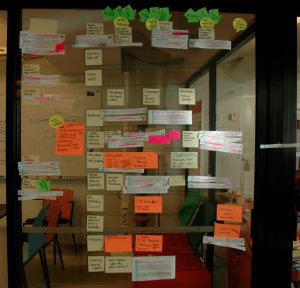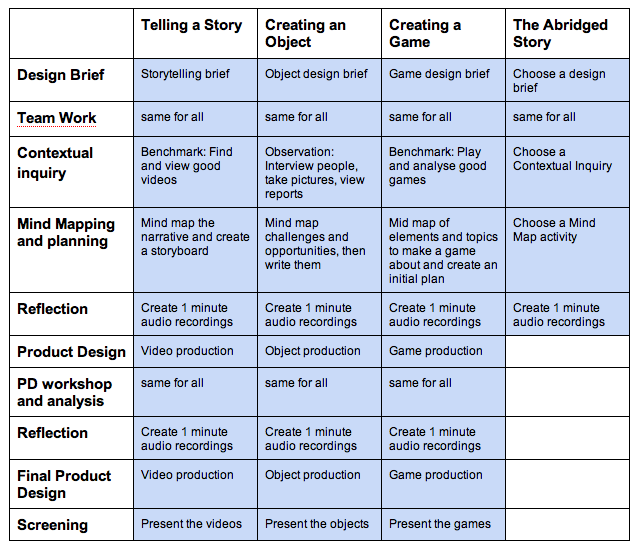The five scenarios that were selected for cycle 4 per-pilots and pilots have been analyzed based on the comments by the steering committee and the PD workshop. Design challenges and opportunities have been identified and similarities and differences in the scenarios emerged.
The scenarios were heavily related to previous themes, namely design practice in school, building on personally relevant and local challenges, (inter-) national collaboration between classrooms and teachers, broadening the walls of schools, and, last but not least, working with experts outside of the school domain. Hence, we are designing the cycle 4 Learning Activities on previously piloted activities.
We are doing this, because the repetition of the themes strongly suggests that certain aspects identified in previous cycles should be explored in more depth. This does not contradict the pedagogical and technical innovation that the iTEC project is intending to achieve, but rather strengthens the already identified advanced pedagogical leads.
In practical terms this means that a total of 4 Learning Stories will be written and presented for (pre-)pilots. These significantly differentiate in relation to the aspects mentioned above; however, all Learning Stories follow the same general structure. This general structure is represented by Learning Activities. Here are short descriptions of the forthcoming Learning Stories, followed by a table presenting the Learning Activities in relation to the Stories.
- Telling a Story – This story’s unique quality is the narrative aspect. Learning how to tell a story, to eloquently convey a point or to convince others of a particular practice can be considered a subject non-specific expert skill, relevant to all areas of interest. This Learning story will render storytelling as meaningful learning experience and answer the question of how storytelling and narrative relate to all subject areas.
- Tangible Creation – This story’s unique quality is its relation to hacker and maker cultures that are finding their way from hobbyist environments to formal learning spaces. This learning story will encourage building connections to national Fabrication Laboratories and Hackerspaces. Students will learn about mass customization and its potential impact on current economic and environmental practices.
- Creating a Game – With a striving, highly explorative game industry and the topicality of gamification, this learning story provides students with the unique opportunity to identify game design concepts in the games they play at home, to explore what it would mean to be employed in the game industry, to apply game design concepts by designing their own game, and to deeply reflect what gamification of school and educational activities would mean.
- The Abridged Story – This learning story provides the very busy yet highly engaged teacher the opportunity to participate in the iTEC pre-pilots and pilots. While certainly not as enriching as performing a full Learning Story, “Telling a Story”, “Creating a Model” and “Creating a Game” may be shortened by performing only the initial four Learning Activities, culminating with the mind mapping activity.










The activities in cycle 4 will be more enjoyable and fun I am sure of that regarding the info above.I am also sure it they will attract more teachers to get involve in itec pilotting work process,Can’t wait to start cycle 4.
All the best 🙂
Thank you for your encouragement, Adil.
Luk, we are hoping that students will create inspiring stories, for example, about their personal experiences of scientific facts, or their understanding of how a historical event may affect their lives or communities today, or something else that may relate to the curriculum of a (pre-)pilot teacher. So, this can be very much combined with a game like sharing between different classes. We are working on this as I am typing the comment. Stay tuned!